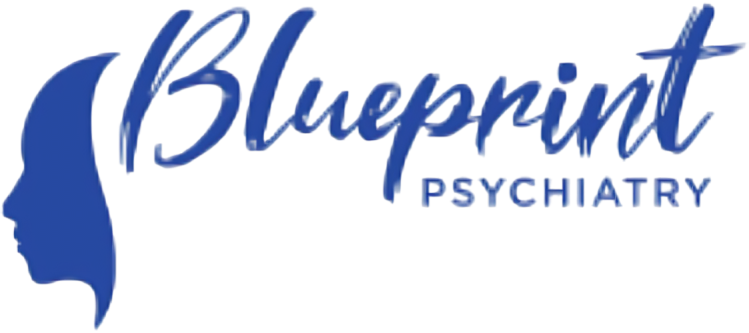In recent years, there have been significant advancements in the field of mental health treatment. Transcranial Magnetic Stimulation (TMS) therapy. This innovative, non-invasive therapy offers new hope to individuals suffering from depression and anxiety, particularly those who have not responded to traditional treatments. In this guide, we will explore what TMS therapy is, how it can work, the benefits, and how to find a psychiatrist near you who offers this transformative treatment.
Understanding TMS Therapy
Transcranial Magnetic Stimulation (TMS) therapy uses magnetic fields that stimulate your brains nerve cells. It is an FDA-approved treatment for depression and is also being used off-label to treat other mental health conditions, such as anxiety. TMS therapy works by placing an electromagnetic coil against the scalp, which generates magnetic pulses that specifically targets areas that the brain associated with mood regulation.
How TMS Therapy Works
During a TMS therapy session, the patient sits comfortably in a chair while a trained technician or psychiatrist places the electromagnetic coil on the patient’s head, typically near the prefrontal cortex. This area of the brain is known to be underactive in individuals with depression. The magnetic pulses stimulate neural activity in this region, helping to improve mood and reduce symptoms of depression and anxiety.
The Science Behind TMS Therapy
TMS therapy influences the brain’s electrical activity. This can lead to changes in neurotransmitter levels and improve communication between different brain regions. These changes can result in enhanced mood and cognitive function, providing relief from depression and anxiety.
Benefits of TMS Therapy
TMS therapy offers numerous advantages over traditional mental health treatments, making it an appealing option for many patients.
Non-Invasive and Drug-Free
One of the largest benefits of TMS therapy is that it is non-invasive and drug-free. Unlike most medications, which can cause a range of side effects, TMS therapy does not involve surgery or medication intake. This makes it a safer option for individuals who cannot tolerate medication or prefer a more natural approach to treatment.
Effective for Treatment-Resistant Depression
TMS therapy has shown to be highly effective for individuals with treatment-resistant depression. These are patients who have not found relief through standard treatments such as medication and psychotherapy. TMS therapy offers a new avenue of hope, with many patients experiencing substantial improvements in their symptoms.
Little To No Side Effects
TMS therapy is tolerated well by most patients, with little to no side effects. The most common side effects are mild and can include scalp discomfort or headaches, which typically resolve after a few sessions. Unlike medications, TMS therapy does not cause systemic side effects.
For example weight gain, sexual dysfunction, or gastrointestinal issues.
Long-Lasting Results
Many patients who undergo TMS therapy report long-lasting relief from their symptoms. While individual responses can vary, some patients experience sustained improvements in their mood and mental health for months or even years after completing the treatment. Periodic maintenance sessions can be recommended to prolong the benefits.
The TMS Therapy Procedure
Understanding what to expect during TMS therapy can help alleviate your concerns and prepare you.
Initial Consultation
Before starting TMS therapy, you will have an initial consultation with a psychiatrist. During this session, the psychiatrist will review your medical history, discuss your symptoms, and determine whether TMS therapy is suitable for you. They should also explain the procedure, potential benefits, and any risks involved.
Treatment Sessions
TMS therapy typically involves daily sessions (five times per week) over a period of four to six weeks. Each session lasts about 30 to 40 minutes. During the session, you will sit in a comfortable chair while the electromagnetic coil is positioned on your head. The treatment is painless, and you can continue your normal activities immediately afterward, as there is no downtime required.
Monitoring Progress
Throughout the treatment course, your psychiatrist will monitor your progress and make any necessary adjustments to the treatment plan. Regular assessments ensure that you are receiving the optimal level of stimulation to achieve the best possible results.
Finding a Psychiatrist Near You for TMS Therapy
If you are considering TMS therapy, finding a qualified psychiatrist near you is an essential step. Here are some tips to help you locate a provider:
Online Research
The internet is valuable for finding information about TMS therapy providers in your area. Use search terms like “psychiatrist near me” or “TMS therapy near me” to identify local clinics and practitioners. Many clinics have websites that provide detailed information about their services, treatment options, and patient reviews.
Consult Your Primary Care Physician
Your primary care physician should be a valuable source of information and referrals. Discuss your interest in TMS therapy with your doctor, and they may be able to recommend a reputable psychiatrist who specializes in this treatment.
Check Professional Directories
Professional directories, such as those maintained by the American Psychiatric Association (APA) or local medical boards, can help you find licensed psychiatrists who offer TMS therapy. These directories often include contact information, credentials, and areas of specialization.
Ask for Recommendations
Word-of-mouth recommendations from friends, family, or support groups can also be helpful. If you know someone who has undergone TMS therapy, ask about their experience and whether they would recommend their psychiatrist.
What to Expect During TMS Therapy
Understanding what to expect during TMS therapy can help you feel more comfortable and prepared for the treatment.
Initial Session
Your first TMS therapy session will involve some initial measurements and adjustments. The psychiatrist will determine the appropriate location on your scalp to place the coil and the correct intensity of the magnetic pulses. This process ensures that the treatment is tailored to your specific needs.
Subsequent Sessions
During each subsequent session, you will sit comfortably while the electromagnetic coil is placed on your head. The machine will deliver a series of magnetic pulses, and you may hear clicking sounds or feel a tapping sensation on your scalp. The sessions are typically painless, although some patients may experience mild discomfort.
Post-Treatment Care
Resume your normal activities after each session. There is no need for recovery time, making TMS therapy a convenient option for individuals with busy schedules. Your psychiatrist will check on your results and adjust the treatment as needed to ensure the best outcomes.
Combining TMS Therapy with Other Treatments
While TMS therapy can be highly effective on its own, you can also combine TMS with other treatments for a more comprehensive approach to mental health care.
Medication Management
For some patients, combining TMS therapy with medication can enhance the overall effectiveness of treatment. Your psychiatrist can work with you to determine the best medication regimen to complement your TMS therapy.
Psychotherapy
Integrating TMS therapy with psychotherapy can provide additional support and address underlying issues contributing to your depression or anxiety. Therapies such as cognitive-behavioral therapy or dialectical behavior therapy can be particularly beneficial.
Lifestyle Adjustment
Making some lifestyle adjustments, such as consistant exercise, a good diet, and stress management, can further enhance the benefits of TMS therapy. These big changes can improve overall well-being and support long-term mental health.
Conclusion
Transcranial Magnetic Stimulation (TMS) therapy represents a groundbreaking breakthrough within the field of mental health treatment. The non-invasive nature, minimal side effects, and high success rates make it a valuable option for individuals struggling with depression and anxiety. If you are seeking an effective mental health treatment, consider exploring TMS therapy and finding a qualified psychiatrist near you. With the right support and treatment plan, you can achieve desired lasting relief and improve your quality of life.

